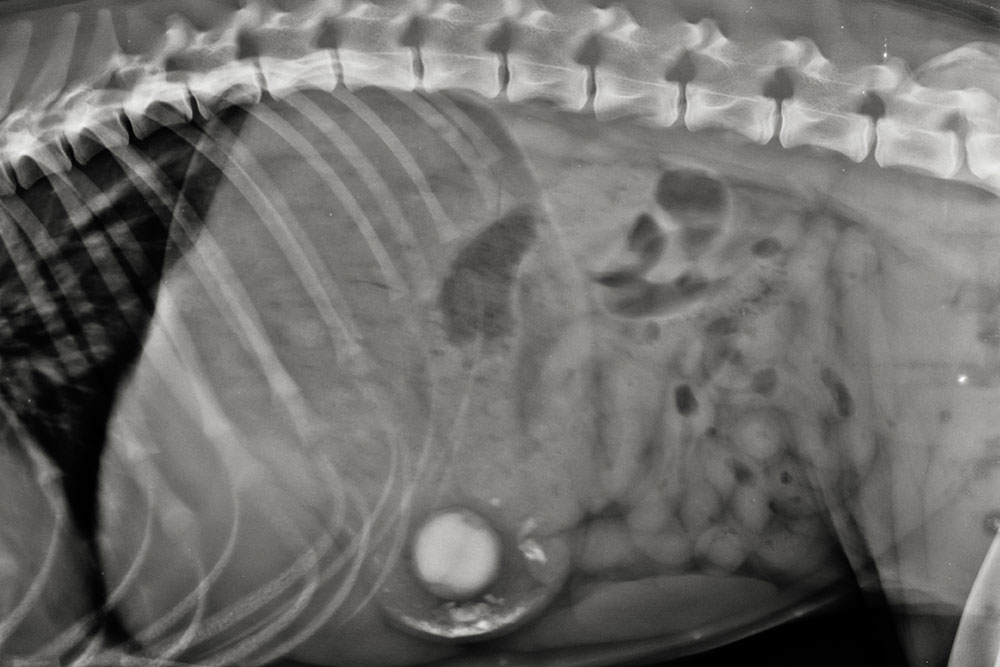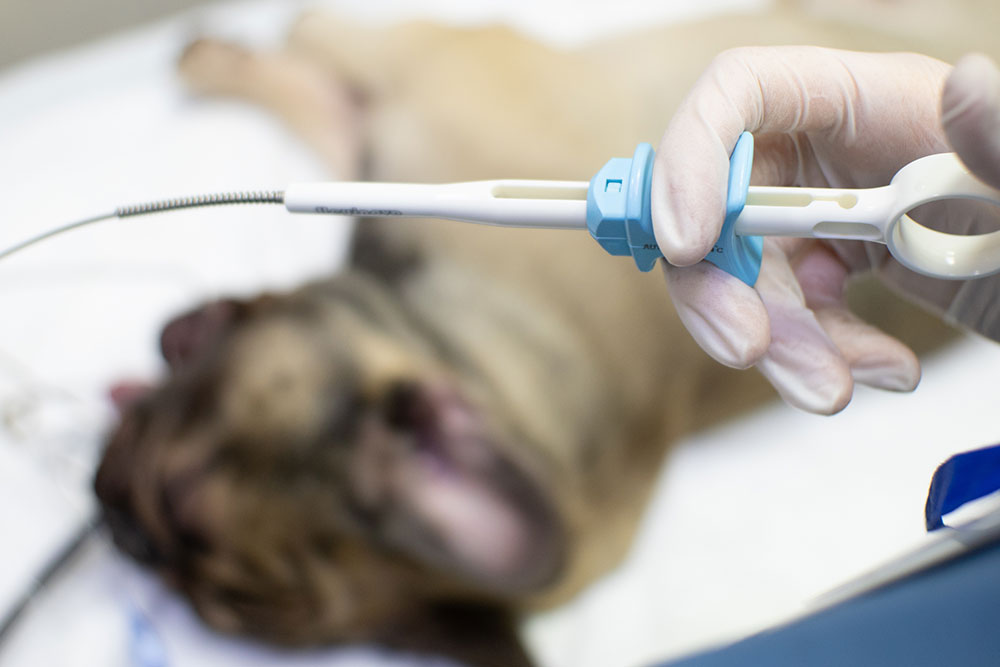They Ate WHAT?! A Pet Owner’s Guide to Understanding Foreign Body Surgery
Every pet owner has had that moment—your dog’s acting strangely, your cat’s gone quiet, and suddenly you realize a favorite toy, sock, or kitchen item is missing. Cue the sinking feeling: Did they eat it?
Foreign body ingestion is more common than many realize, and while some pets are lucky enough to pass objects on their own, others may require urgent—and even life-saving—surgery. At Boca Midtowne Animal Hospital, we’ve helped countless pets recover from this kind of unexpected emergency with compassionate, expert care.
This guide will walk you through what foreign body ingestion is, how to spot it, what treatment looks like, and most importantly, how to prevent it.
What Is Foreign Body Ingestion?
Foreign body ingestion occurs when a pet swallows something they shouldn’t—something that can’t be digested or safely passed through the gastrointestinal tract. Unlike food or treats, these objects can cause dangerous blockages, tears, or toxicity.
Curious dogs are frequent offenders, but cats—especially playful kittens—can also be prone to swallowing items like string, hair ties, or small toys. The challenge is that symptoms may not appear immediately, and the object could already be causing damage by the time you notice something is wrong.
Common Offenders: What Pets Tend to Swallow
We’ve seen it all. Some of the most commonly ingested items include:
- Socks, underwear, and dish towels
- Rubber bands, string, and tinsel (especially dangerous for cats)
- Small toys, especially those with squeakers
- Corn cobs, bones, and food packaging
- Hair ties, dental floss, and yarn
- Batteries, coins, magnets—particularly dangerous due to toxicity or internal damage
But why do pets eat these things? Sometimes it’s boredom, anxiety, teething (in puppies), or a condition called pica, where animals develop an appetite for non-food items. Understanding these underlying behaviors is key to prevention. Read more about behavioral care here.
What Happens When a Pet Swallows a Foreign Object?
Gastrointestinal Obstruction
If the object becomes lodged in the stomach or intestines, it can block the passage of food and fluid. This causes swelling, pain, and eventually tissue damage if untreated. Obstructions are time-sensitive and can lead to sepsis, perforation, or even death without intervention. Cornell University offers a deep dive on this condition.
Perforation and Infection
Sharp objects—like plastic shards or bones—can puncture the GI tract, leaking bacteria into the abdominal cavity and leading to peritonitis, a serious and potentially fatal infection.
Toxic Exposure
Some items, like batteries or certain plastics, can leach toxic chemicals. Others, like magnets, can attract each other through intestinal walls, creating severe internal damage.
Signs Your Pet May Have Ingested Something Dangerous
Symptoms may appear quickly—or take a few days to develop. Watch for:
- Repeated vomiting or dry heaving
- Loss of appetite or refusal to drink
- Lethargy or unusual quietness
- Restlessness or whining
- Abdominal bloating or pain (you may notice hunching or sensitivity when touched)
- Drooling or pawing at the mouth
- Diarrhea or constipation
If you suspect ingestion, don’t wait for symptoms to escalate. Early diagnosis improves treatment success.
How We Diagnose Foreign Body Ingestion
Veterinary Evaluation
Your vet will start with a full physical exam, checking for signs of pain or obstruction. If ingestion is suspected, diagnostic imaging is the next step.
X-rays and Ultrasound
X-rays are often the first tool used, especially for locating metallic or dense objects. For softer materials, ultrasound may provide better visibility. More on gastrointestinal foreign bodies here.
Endoscopy
In some cases, we use endoscopy, a minimally invasive technique that allows us to visualize the upper GI tract and sometimes retrieve the object without surgery.
Treatment: When Is Surgery Necessary?
Non-Surgical Options
If the object is small, smooth, and hasn’t yet caused a blockage, we may recommend medications or fluids to help it pass naturally. For some items in the stomach, endoscopic retrieval is possible.
Surgical Intervention
When the object is too large to pass, is causing a blockage, or poses a danger to surrounding tissue, exploratory surgery becomes necessary.
During surgery, we locate and remove the object through an incision in the stomach or intestines. The procedure is highly effective but must be done promptly to avoid complications. Explore more about exploratory surgery.
Recovery: What to Expect After Surgery
Post-Operative Care
Your pet will need rest, pain medication, and monitoring for complications like infection or digestive upset. We’ll send you home with detailed instructions for wound care, feeding schedules, and follow-up visits.
Dietary Adjustments
A bland or prescription diet is often recommended to ease the digestive tract back into normal function. Some pets may require soft or liquid food temporarily.
Monitoring for Relapse
Once a pet has eaten something they shouldn’t, they’re more likely to do it again—especially if boredom or anxiety was a factor. Prevention becomes a long-term priority.
Preventing Future Incidents
Pet-Proofing Your Home
Think like your pet. Anything left within reach that can fit in a mouth might be a target. Keep laundry, small toys, food scraps, and string out of reach. Use this pet-proofing checklist to get started.

Behavioral Support
Training, enrichment, and routine playtime can reduce stress and destructive chewing. Puzzle toys and safe chew items are great outlets.
Choose Safe Toys
Avoid toys with removable parts, strings, or stuffing that can be torn and swallowed. Supervise playtime when introducing new toys.
When to Call the Vet
If your pet shows signs of vomiting, lethargy, abdominal pain, or any unusual behavior—and you suspect something may be missing or chewed—don’t wait. Early intervention can be the difference between a smooth recovery and a life-threatening emergency.
We’re here to help. For urgent concerns, contact us.
Foreign body ingestion is scary—but treatable. With fast action, expert care, and thoughtful prevention, your pet can recover fully and return to their playful, tail-wagging self.
At Boca Midtowne Animal Hospital, we take these emergencies seriously and treat each case with the care and precision your pet deserves. Whether it’s advanced diagnostics, surgery, or follow-up care, we’ll be with you every step of the way.
If you ever find yourself saying, “They ate what?!”—you know where to turn.








Leave A Comment